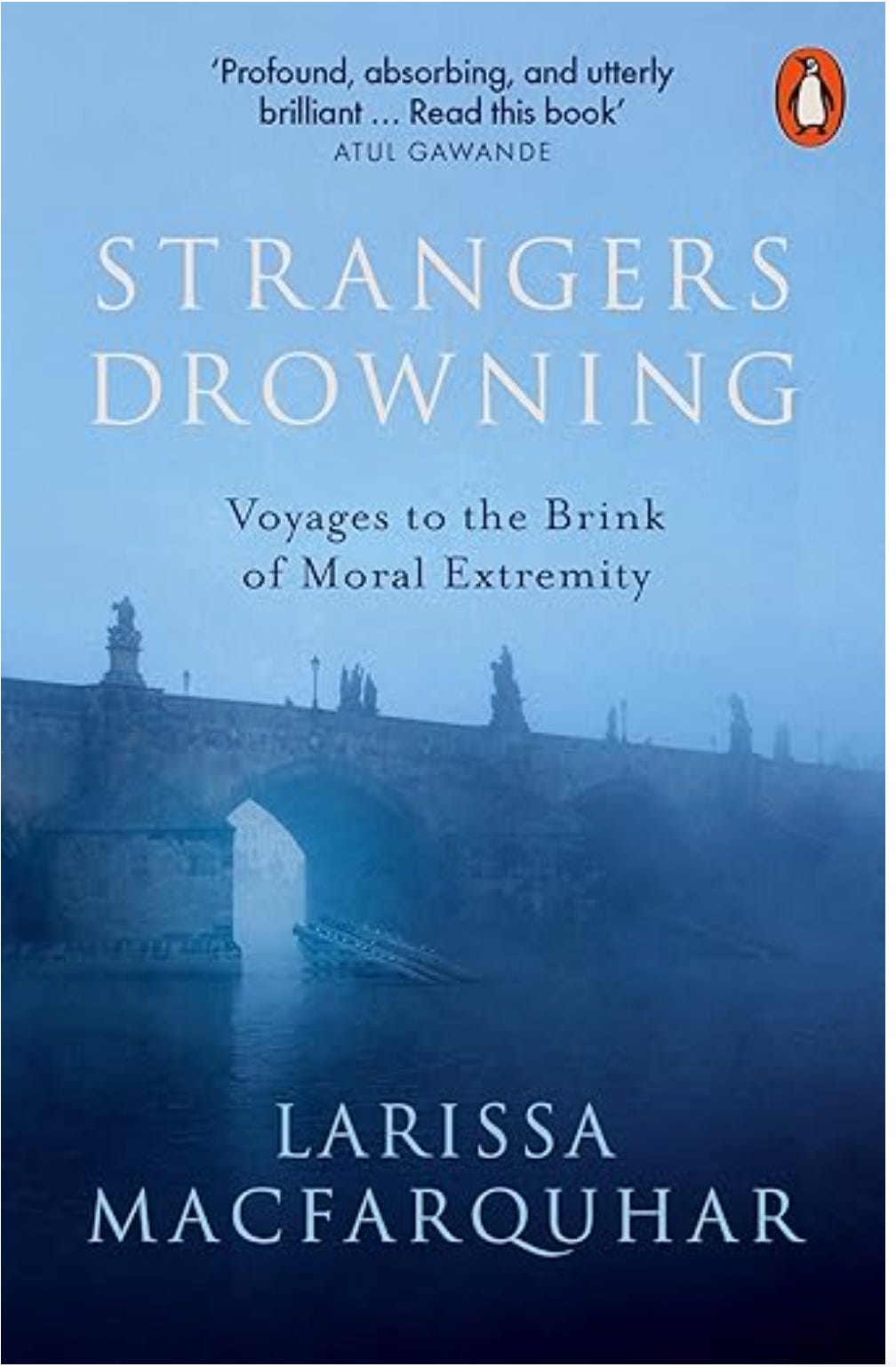Eight recommended books about good and evil
This is an idiosyncratic list, tilted toward my own interests. The books are in the social sciences and the humanities, written in the last ten or so years (with the exception of the first one on the list), and very well-written and accessible—anyone can read them, no special background needed. (Derek Parfit is one of my favourite scholars, but I don’t include his three-volume set, On What Matters, since it’s written for his fellow philosophers.) No novels, though I was tempted.
For what it’s worth, I don’t agree with what all of these authors say. I disagree with Haidt about the limits of moral reasoning, with Smith about the prevalence of dehumanization, with Manne about the nature of what she calls “himpathy”, and so on. (I hope to discuss these objections in future posts.) But they are all wonderful books! You can treat this list as the syllabus for the perfect seminar on morality and moral psychology.
Here goes, the order is alphabetical by author.
Roy Baumeister, Evil: Inside Human Violence and Cruelty. A classic, rich with exciting findings and cool ideas. Baumeister argues against what he calls the myth of pure evil, arguing that perpetrators of bad acts generally don’t see what they do as evil, but rather see themselves as responding in a justified way to difficult situations. This was published in 1999, and there’s been a lot done since then, but this is an excellent starting point.
James Dawes, Evil Men. I wish this short and important book had a bigger audience. This is a series of interviews with Japanese perpetrators of extreme evil during the Sino-Japanese War, and it’s a fascinating (and troubling) deep dive into the lives of these men. Among many other topics, Dawes talks about the fascination we have with evil—something which I certainly have and (since you’re reading this) maybe you do too.
Jonathan Haidt, The Righteous Mind: Why Good People Are Divided By Politics and Religion. The most important book in the study of moral psychology. Haidt develops and defends many claims that we argue about today, including the notion that there are multiple foundations of morality—one based on harm, another on purity, and so on—and the idea that liberals and conservatives differ in the sorts of moralities that most matter to them.
Kate Manne, Down Girl: The Logic of Misogyny. A powerful argument that misogyny doesn’t arise because men dehumanize women; rather; it exists because the humanity of women grates at many men, challenging their authority and undermining their status. More than any other book in this list, Down Girl made me think differently about the nature of everyday cruelty.
Larissa MacFarquhar, Strangers Drowning: Voyages to the Brink of Moral Extremity. Perhaps the best-written book of the bunch, MacFarquhar delves into the philosophy and psychology of kindness, by exploring the lives of do-gooders. Some of them are effective altruists, some are driven by religious convictions, and some just seem to be very nice people. A fascinating book, and a nice respite from all the murder, torture, and genocide in the other books on this list.
Steven Pinker. The Better Angels of Our Nature: Why Violence Has Declined. Written by one of the deepest thinkers and best writers in psychology, this is a long compelling argument that we have become morally better over human history. (These ideas are developed further in his Enlightenment Now). This is a bold and important claim and (sorry if this sounds like a blurb) Better Angels really is a book that everyone should read.
David Livingstone Smith, On Inhumanity: Dehumanization and How to Resist It. Smith has written a few books on the topic of dehumanization; this is his most accessible. This powerful and humane work seamlessly integrates insights from history, philosophy, and psychology to provide insights about humanity at its most horrible.
William MacAskill, What We Owe the Future. This exhilarating book is primarily a defense of “longtermism”—the idea that our main moral priority should be the lives of people in the distant future. In the course of this, MacAskill explores topics such as AI risk, the contingency of moral progress, the pros and cons of utilitarian moral philosophy and much else. Deeply imaginative and also surprisingly fun to read.
It would be too arrogant to put my own books on the list, but too humble to leave them out entirely. So I’ll just add that I have two books that deal with moral psychology.
Just Babies: The Origins of Good and Evil. I try to do a lot here, but it’s mostly a theory of which aspects of morality are human nature, and which arise through cultural forces.
Against Empathy: The Case for Rational Compassion. My most pugnacious book. I argue that empathy—in the sense of feeling what others feel—is a poor moral guide. We are better people when we draw upon the right combination of compassion and rationality.













The six I have read on this list are all fantastic!
Another you might like is Humanity: A Moral History of the Twentieth Century, by Jonathan Glover.